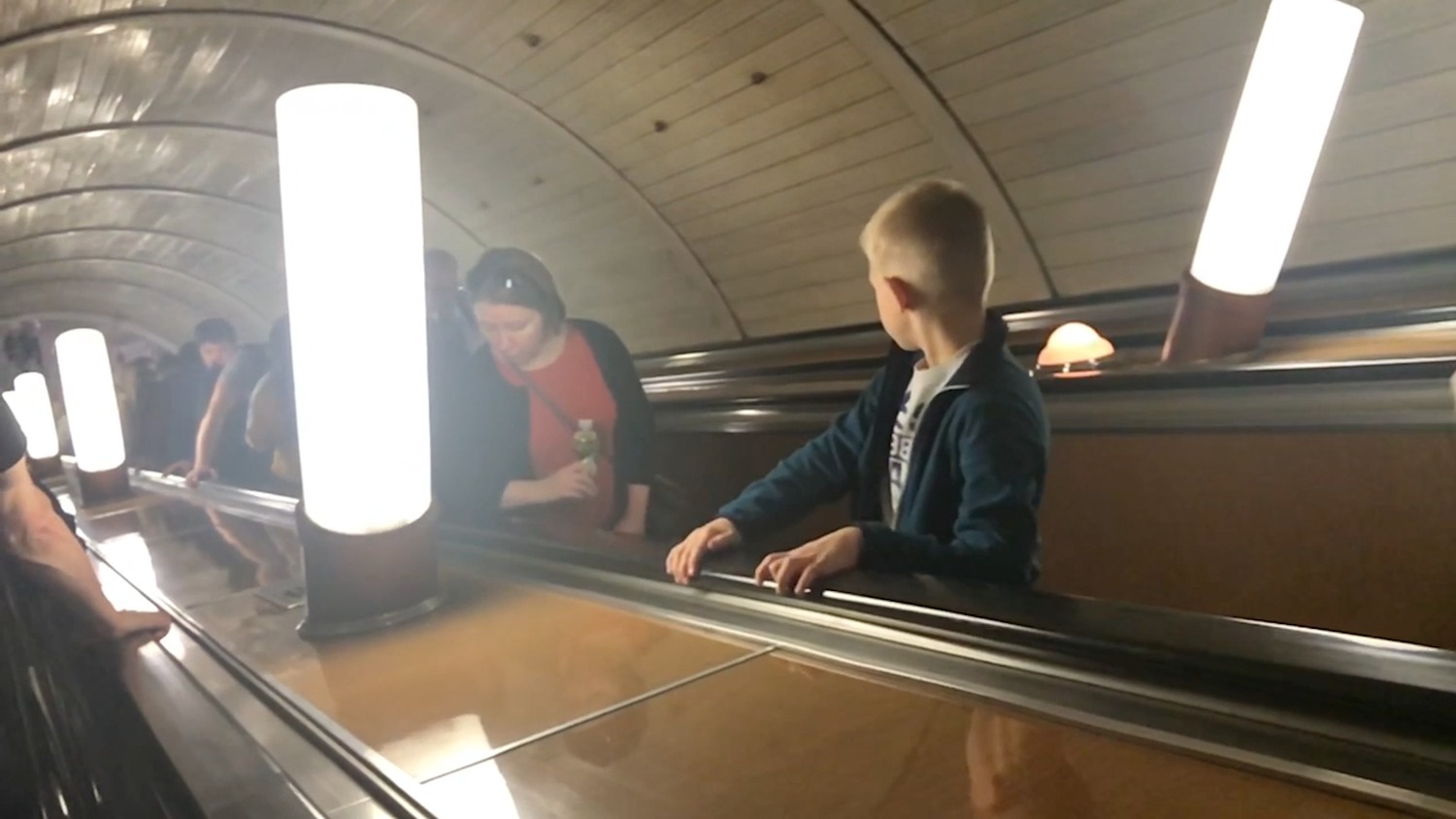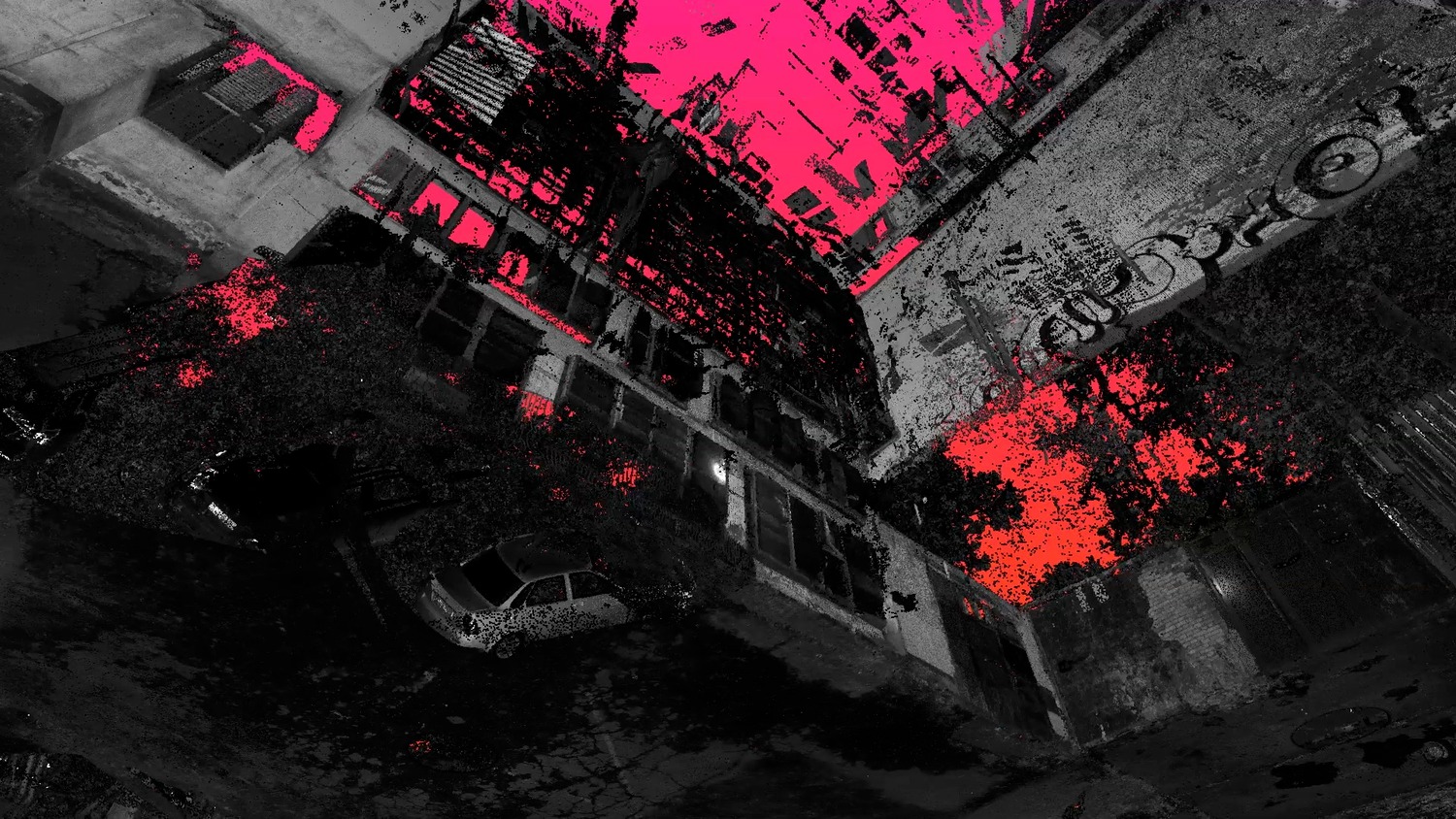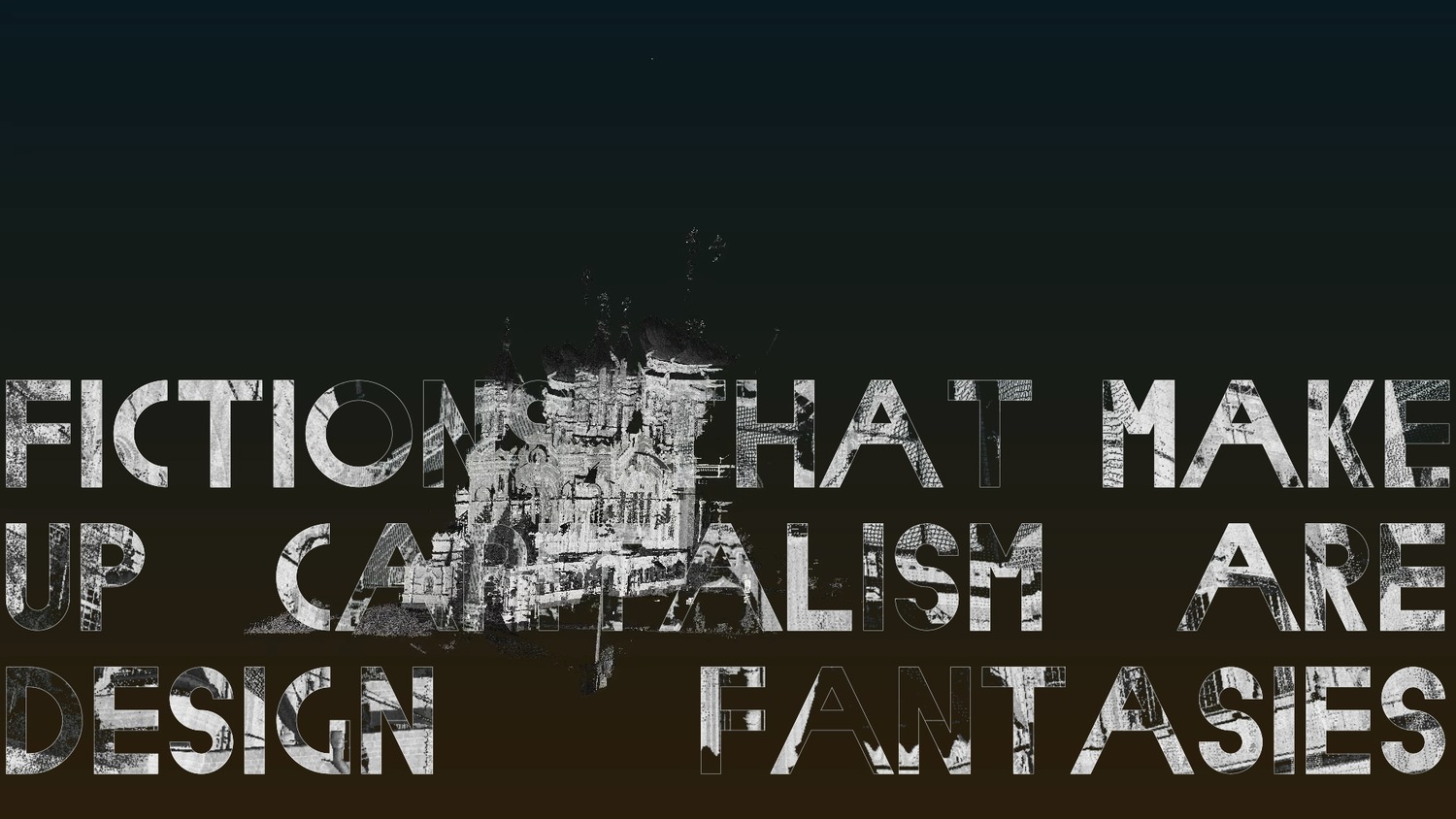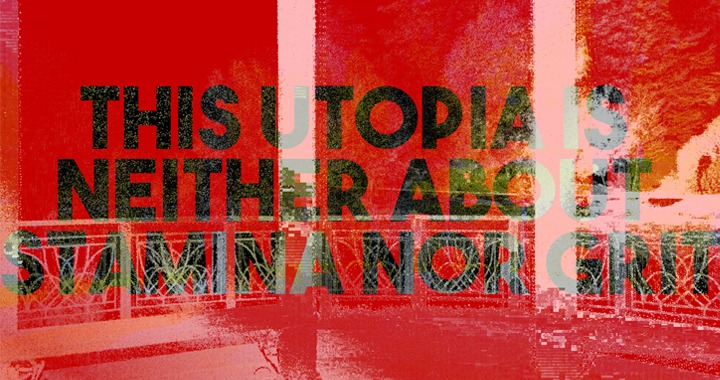
Weird economies in non-linear time
An interview with artist Bahar Noorizadeh
“If history at its best is a blueprint for science-fiction, revisiting contingent histories of economic technology might enable access to the future. Vindicating this other internet, the work presents the economic application of socialist cybernetic experiments as extra-ordinary to the financial arrangements and imaginations of our time.” That is an excerpt from the description of the video work “After Scarcity” (2018), which can be seen in the group exhibition “Unexpected Encounters”, currently in its last week at the “Arsenāls” exhibition hall. The video’s creator, Bahar Noorizadeh (1988), is an Iran-born artist, writer, and filmmaker whose work revolves around reconsidering hegemonic time narratives (philosophical, legal, financial, futural, etc.) that we too easily seem to take for granted.
Her work has appeared in the Tate Modern Artists' Cinema Programme, Berlinale Forum Expanded, the Toronto International Film Festival, the Beirut Art Centre, and elsewhere. She is also the founding member of BLOCC (“Building Leverage over Creative Capitalism”), a research and education group that explores the relationship between contemporary art and gentrification with a focus on education and pedagogic strategies as tools for altering this relationship. “After Scarcity” is a work well-representing her current research in which she introduces the notion of “Weird Economies” and proposes a different holistic and multi-disciplinary approach to the way we think about the future of financialization and the economy of contemporary art.
During her life, Noorizadeh has spent substantial portions of time in Iran, Canada, the U.S., and Lebanon. She currently resides in London where she’s pursuing a PhD in Art Practice+Theory at Goldsmiths, University of London.
Bahar Noorizadeh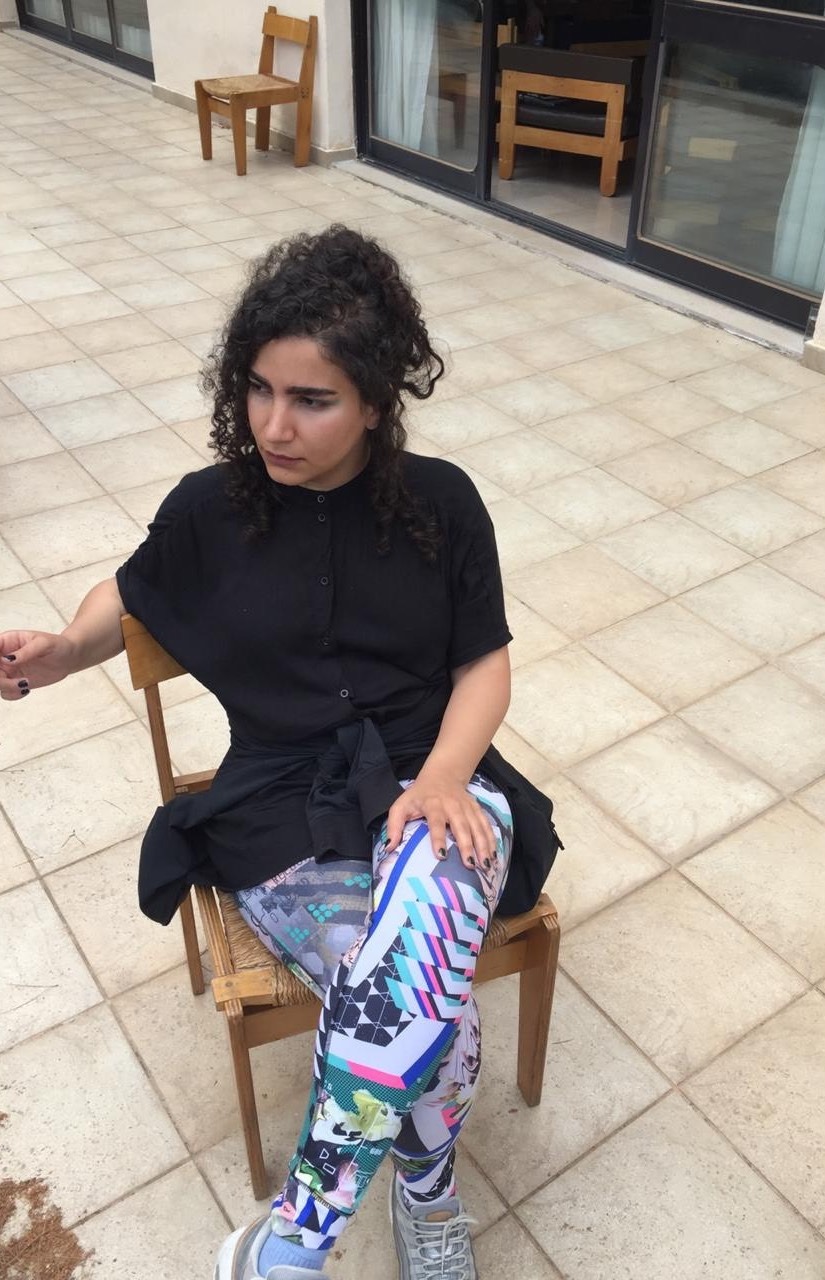
Arterritory: Would you call your work at the “Unexpected Encounters” exhibition a documentary?
Bahar Noorizadeh: I call it a sci-fi essay.
Why an essay?
It is very discursive; there's a lot of text. Different variations of text – like voice-overs, subtitles, text-line images.
So, you tracked down Soviet cyber technicians and inquired about their attempts to build a completely structured economy. Could you describe how you did that? Where does one start from for such a project? And where are you going with it?
Maybe I can start with how the research began. A few years ago I became interested in the economy of art, and especially of this new form of contemporary art that, as we know, is a transnational network.
By “new form” you mean a form that's been around for how long?
Since around the origins of globalization in the 1960s and 70s. Up until the present. What we are dealing with in this period is a very mobile community. What we know of this system of art is that its economy is very informal. Its rules are not written; it consists of verbal promises most of the time. It's very informal both in terms of how the money moves and how the people move and interact. So the question we were asking was how to regulate this field. It's an obvious question because there's such a vast imbalance of power between different members of the art world. That's were I actually started to get my hands dirty – by trying to engineer systems of regulation and protocols, and thinking about legal forms that could work.
The question is really about scale: how can something work on this global scale? In certain cities there are artist unions that try to regulate these things internally, but that would work only if people were not moving around. In art, as elsewhere, people are moving all the time – some are joining the communities in these cities, while people from these cities are going elsewhere. So what we need is something that covers the network. And that's where I started looking into these alternative models of thinking about economic scale differently – models that don't necessarily fall into the market system. And, of course, one of the first examples I came across was this case of Soviet cybernetics. Which actually was one of two twin projects: the other was undertaken in Chile and was almost made functional under the Allende government, before the coup changed the situation. But it was much more advanced than the Soviet one.
So how did the process of research unfold?
Well, I'm not the only one interested in these questions. The financial crash of 2008 brought new attention to thinking about alternative economic models that don't necessarily conform to this financial nihilism of our times – that the world is bound to fall into total financialization. There are people who are thinking about recovering these contingent histories about when things actually started to become so dogmatic. There are a few scholars writing about this, and I started to read them. The next step was that I went to Moscow and met with some of the family members of Soviet cyberneticists – for instance, with the daughter of the first director of the Soviet Cybernetics institute; the daughter is now a historian. She was very helpful with my research, but by interviewing her I also learned more about people's lives in the context of these questions.
Still from the video work "After Scarcity"
What would you say were the few main things you learned about alternative models of financialization while making this film?
A way of looking at these past histories without this kind of bland utopianism. As we know, Soviet cybernetics models are basically what's happening in China right now. That's a perfect example of a centralized, technologically built infrastructure supporting the economy. So it's not very utopian. But, I think that looking at these moments breaks down the dogmatism around the technology itself, because the way we think about the internet, for example, is very solidified. We think – this is it and it could not exist in any other way. But in different parts of cultural theory, we don't have this kind of dogmatism – that things are meant to be like this. With technology, we usually think that this is how telephones should be, and this is how the internet should be, and there was no other way. What then happens is that we try a kind of hacker or infiltrator paradigm in which we think – I'm going to take this tool as it is and use it differently. But that's not the only option; it’s not the only valid option. This tool could be radically different. And I have to remember that it's not about working out something that was supposed to be or thinking about how these moments of divergence happened and how technology could have been radically different. And then – what would that mean to this moment. For example, cryptocurrencies are now becoming more entrenched in capitalist models. We need to remember these moments where we know that this could also be something else. It need not fall into that. I think this is important to consider.
But also another thing that was kind of a central statement/argument of the film was trying to break down these binaries of capitalism vs socialism and these histories that seemingly fall into these dichotomies – it's either this or that. Indeed, the capitalistic economy at this moment actually resembles a socialist dream. The gig economy, platforms like Uber and AirBnB, the shared economies... These are like the things that were dreamed about in the socialist system, but, of course, the problem is that they are all owned by corporations.
Are there places in the world where you think the balancing and exploitation of alternative models is more successful?
That's a good question. I think that at the moment there are a lot of projects that are being done on a smaller scale. I see more and more people trying to redesign very small communities based on a particular niche of the market. For instance, the fishing community – how to reformat that. The point is, of course, that it is not sustainable and this is not scalable for everyone. And I think that's where the projects like Soviet cybernetics become interesting. Essentially, what they wanted to do was to build this web of connectivities and let these communes survive on their own. But then the question becomes – how to make this a part of a larger system.
You said you took an interest in this a few years ago. What did you mainly work on before that – what were your central interests?
I studied mathematics and physics in high school, and I was doing engineering for a few years at university before completely switching to the cinema. So my first encounter with art was a very rigorous kind of movie-making, filmmaking. And from that, I switched to the visual arts and more conceptual practices. But I think that those years were still formative, and these questions around economics were always something that I carried with me ever since I left Iran and went to Canada and the US, which was the trajectory of my education.
How did you end up here? Were you invited by the curators?
Inga knew about my work from a show I had in London in the Narrative Projects gallery. Then she went to Beirut, where I had lived for three years before moving to London, and there people introduced my work to her. Surprisingly, she even stayed in my old room.
Still from the video work "After Scarcity"
But it was your idea to bring this particular work to the exhibition?
Actually, in our first communication, she asked about another work. I sent her two links, and she saw this one, and, obviously, it was a better match for this exhibition.
What have been the most important events in your life? Why did you leave Iran?
I was very young – it was a family emigration case. My older brother was already in Canada, and my whole family moved there. It's a very common thing for Iranian middle-upper class people – at least at that time when it was easier to get a second citizenship. Of course, it is much more difficult nowadays. But yes, my parents live in Iran now. They have Canadian citizenship, but they moved back to Iran because they like it better there.
But you mainly stayed in Canada?
No, I was very mobile. I stayed in Canada for five years, then two years in Chicago, then three years in Beirut, and now, London.
As one of the epigraphs for your film, you chose a quote by Elena Esposito: “The past teaches us, but we don't know what”. Why did you select this quote, and what do you make of it?
That's a good question. Maybe something that brings all my thinking and my practice together is the issue of time. What it means in the case of finance is that it's a process that's moving backward. There are things that are coming at us from the future that shape the present – through insurance, through credit; these financial instruments are mining the future, but we actually see their effects at the moment. And this completely transforms the idea of how we deal with history, archives... Moments like these actually render history a bit arbitrary, because what's shaping life in terms of the monetary system is always arriving from a different direction and is actually completely disconnected from this time scale as we know it. A lot of people discuss market contingency as if it's actually a matter of predictability. Because with predictability there's still an idea that past actually matters in how you predict the future – you learn something from the past, going back to Esposito's quote. So, this knowledge that you get from the past in a predictability model is supposed to inform how you act in the future. Whereas with market contingency and financial contingency, there’s no basis as to what the past does to the future. Basically, Esposito’s quote, “The past teaches, but we don’t know what,” means that it’s too early to process what that past is telling us. It’s always too early. We can only know in retrospect, which is always too late.
You’re interested in “hegemonic time narratives that have collapsed”. Could you untangle that a bit and give some examples? I suppose you have mentioned some already.
Yes, exactly. Speaking about what I mean by – and what are the implications of – this retrospective time in different spheres, would be...that kind of disconnection that we have with historical process. Actually, we see its effects in many different fields. For example, as I mentioned, legal time and colonial (collateral?) time: legal time, the way we think about a court case, for example – there’s always evidence, there’s always some past remains of the crime that is presented to the court and then you make a judgment on the basis of that. But what happens with financial time is that the process has not happened yet, but you see the effect at the moment. So you don’t have access to the evidence, which is not actually inscribed. It’s supposed to be something that may be or may be not, based on a risk that concerns the future. But people are making money off of it, obviously.
Still from the video work "After Scarcity"
What was the year that BLOCC came together?
We first met in 2017, but the project developed in 2018.
How did that happen? How did you meet?
That’s actually pretty interesting. We were part of this residency in Switzerland that asked for a two-year continuation for the same people that take part in the residency. Such a system provides good continuation and institutional memory. So, we met about five or six times over two years. It is really crucial to meet face-to-face – it’s much different than Skype conversations.
I agree. So, what is BLOCC’s legal status now? Is it an NGO?
It’s an art collective. An art project, in a sense. It’s not registered anywhere. We try to build a self-sufficient business model. For instance, if a university wanted to invite us to a conference, they would have to pay us fair fees.
But wouldn’t you then have to be some kind of a legal body?
No, not as artists. We still work in the informal economy of contemporary art. For example, people can invite us to do a workshop or participate in a talk.
Do you have any short-term or long-term goals you (as in BLOCC) could share?
I think the long term goal is that we want to make the conversation around social cleansing and gentrification and the role of arts in the situation part of the syllabus of every educational model. This is absolutely missing from the curriculum of art schools right now. We learn critical theory from the first year but nothing that contextualizes our very own practice. What is art’s very concrete, material role in the political scene you are trying to address through your work? This is the long term goal. And I think a lot of people are starting to think about these issues, so hopefully that’s achieveable.
And what are your personal plans or goals for the future?
What I’m doing now is designing a sort of platform around this idea of weird economies that I design as a counterpart of economic science fiction. And the reason is that all of these things question time’s linearity. With science fiction, this linearity is not yet as broken as it should be. So, with weird economies I want to introduce these different models of time in thinking about economics and different agencies that are not completely humanistic. Because I think that as much as our goal is to be good humanists, humanism as a starting point is not very useful for thinking about these issues. Because humanism also has, for the longest time, been very biased about what “human” means. In thinking about the histories of colonialism, race, and gender, the idea of “human” already is distorted. Those that were left out were not called humans for a long time. Basically, for now, the idea of weird economies is that it’s a kind of journal which I’m curating and programming, and to which I’m inviting people to speak on this topic and provide different models; I’m making a kind of archive of all these different practices. At the same time, it should tend towards becoming a kind of platform, like a think-tank where people can connect and interact. But the doors are still open. The ideas about where it can go are still open.
Still from the video work "After Scarcity"
If you had the power to design a curriculum for young artists, how would it differ from what most schools and arts universities have now?
Before answering, maybe one thing to point out and problematize regarding arts education is that one effect of the informal art economy is that there’s too much openness. In most art schools, for instance, in the US, you can come from anywhere and go anywhere; you can do whatever you want and shape your own curriculum. The foundation is lost. For example, I barely had any education in art history, which is something I had to learn on my own. I didn’t have that covered even in my undergraduate studies. I think that having a good knowledge of history is essential. I’m really thankful that in Chicago I had at least one course in art history. It was tutored by a professor who called himself “the last Marxist”, and he read art history through the lens of the history of philosophy. You need to know all of these adjacent lineages to be able to look at the bigger picture because each of them separately lacks context. So, having a good historical understanding of your work environment is very key. Nowadays I do some teaching myself, and one thing that I set as the first requirement for my students is to make a work that doesn’t concern themselves – in any way.
Really?
Yes. To create a work that doesn’t concern their own identity and background. Because that’s exactly what art schools want you to do now. They want you to make work that is only about yourself. But the only way to understand what another thing means to you is to do something that’s not personal. To be able to build the links by different means. The only way to know yourself is to do something that doesn’t concern yourself. Otherwise, your vision is too limited.
